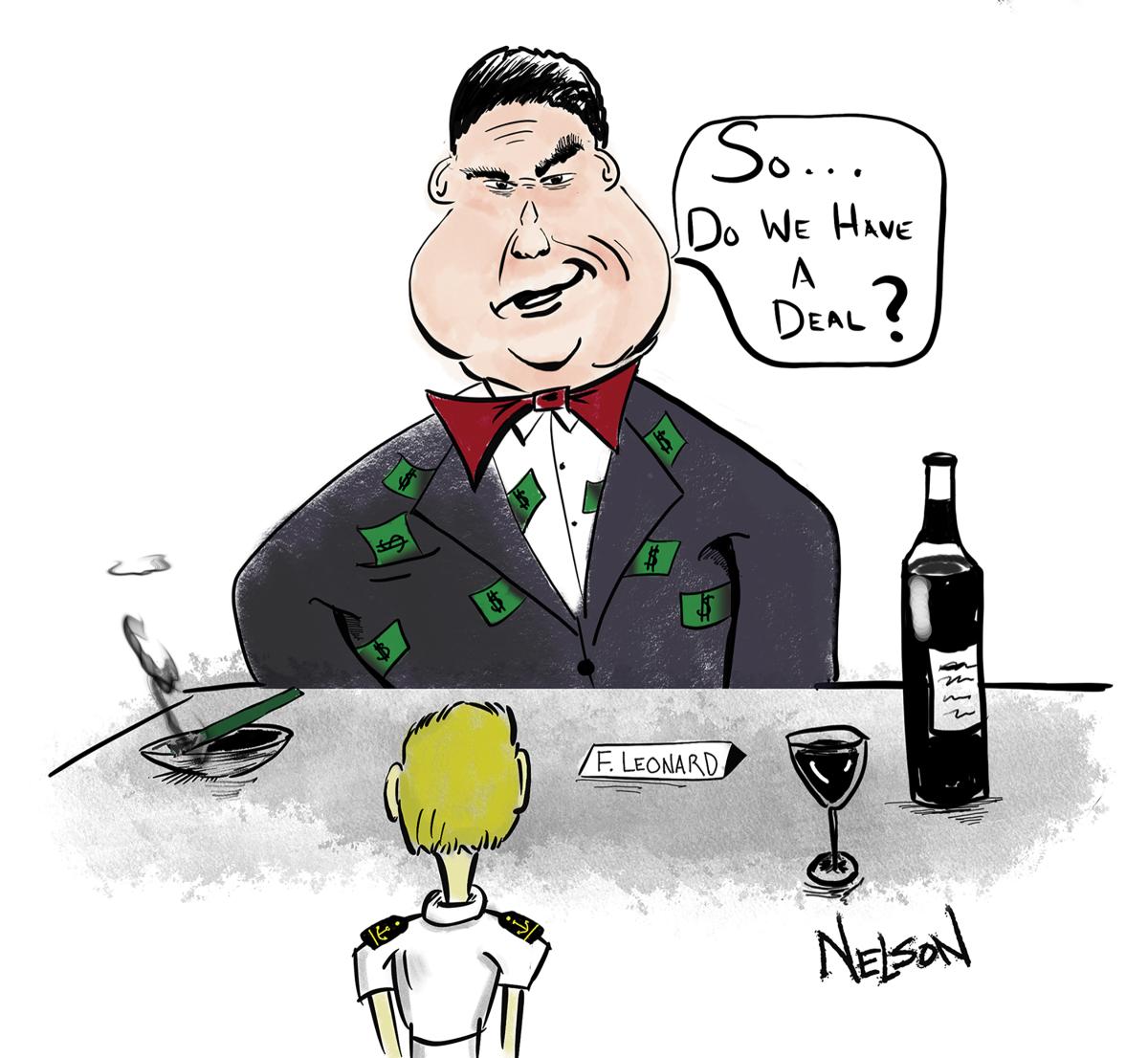The “Fat Leonard” scandal—involving extravagant gifts from a Malaysian defense contractor in exchange for sensitive information—resulted in the investigation of a staggering number of Navy leaders. Aside from the obvious national security implications, the “Fat Leonard” incidents suggest a systemic failure to uphold the ethical standards of the U.S. Navy.
As naval leaders, we must ask how this occurred and how it can be prevented in the future. In particular, we must ask if our officer accession programs are effectively preparing future officers and leaders to employ the core values of honor, courage, and commitment when faced with difficult ethical decisions.
Evaluating Training
Academically, officer candidates are routinely evaluated through exams, papers, presentations, and projects. They are constantly reminded of their progress on some quantifiable scale, typically a letter-grade system. In addition, on a daily basis they practice the skills associated with mental training, including reading, writing, analytical thinking, and studying.
Similarly, biannual fitness assessments provide a direct gauge of physical ability, and weekly or daily workouts provide consistent training. Students are evaluated by a specific standard of push-ups, sit-ups, and run times.
Moral development, however, lacks such vigorous and standardized assessment. Classes, training briefs, and guest speakers often touch on organizational and personal ethics, but there is no standardized evaluation or consistent practice to help develop ethical decision-making habits.
Ethical development is difficult to evaluate, and morality is hard to describe, teach, and instill. Nonetheless, students deserve—and the Navy should provide—an ethics training curriculum built on an organizational standard.
A Better Approach
As a naval aviator, I was able to practice decision-making in countless simulated scenarios, which provided invaluable training for thinking and acting in the aircraft. The seasoned pilots working me through the scenarios not only assessed the accuracy of my decisions but, more important, developed and evaluated the process by which I reached decisions. I was able to react to a given situation without the real-world consequences of a critical error while senior pilots guided me toward better or safer decisions.
In a text used for officer development, Naval Academy ethics professor retired Captain Rick Rubel recalls a discussion with a student who asked if he should pause during a firefight to consider the moral implications. Professor Rubel responded, “No. I want you to deal with your moral conscience today, in class, so when you get the enemy in your sights, you have already dealt with it.”1
Students must not only work through ethical dilemmas in the classroom, but also continually practice decision-making to meet the ethical standard required of naval officers. They must have a methodology that has been rehearsed before they confront real-world challenges.
Similar to scenario-based warfare qualification boards, ethical decision-making boards would help to assess rising officers’ thought processes and application of Navy core values. Through these boards, conducted on an annual basis, officer commissioning program staff would evaluate and quantify candidates’ growth while simultaneously requiring students to actively practice ethical decision-making. A standardized curriculum of scenarios and appropriate courses of action that align with Navy values should be promulgated across all officer accession programs.
Board results would be incorporated into a student’s aptitude for commissioning score. A rubric score along with effective feedback would give students a measurement of their development and a line from which they could improve. Later in their careers, they ideally would rely on their scenario-based training and the learned framework of a Navy ethical decision-making program instead of peer pressure, emotion, or intuition.
In a speech to military and civilian students, former Chairman of the Joint Chiefs of Staff General Peter Pace noted the reality of ethical decision-making: “The moral challenges come when you are least prepared emotionally to handle them.”2 In the same way the military relies on tactical training to take over in stressful environments, we need naval leaders to fall back on learned and practiced processes, in line with Navy core values, when confronted with challenging ethical situations.
To instill organizational values and virtues in rising officers, moral development must be approached with the same rigorous evaluative process as mental and physical development. As the
adage goes, “What gets measured,
gets done.”
Prepared for Battle
In February 2019, former acting Defense Secretary Patrick Shanahan sent a memorandum to all Department of Defense personnel speaking to ethics: “Our mind-set must focus on more than just meeting minimum compliance standards. Experience has shown that discussions of potential or past scenarios is the most effective way to reinforce a culture of values-based, ethical decision-making.”3 Scenario-based ethical decision-making boards at commissioning programs could be a key step in inoculating midshipmen and officer candidates against future ethical infractions and ramifications. Training and evaluating future officers in the organization’s core ethical framework will prepare them for the inevitable ethical battlefield in the same way they are prepared for tactical warfighting.
1. CAPT Rick Rubel, USN (Ret.), “Introduction: Getting to the Moral Point of the Case,” in Case Studies in Ethics for Military Leaders, ed. George R. Lucas Jr. (Boston: Pearson, 2015), xx.
2. GEN Peter Pace, USMC (Ret.), lecture at the U.S. Naval Academy Leadership Conference 2019, Annapolis, MD, 24 January 2019.
3. Patrick M. Shanahan, “Leading with an Ethics Mindset,” memorandum, 2 February 2019.



